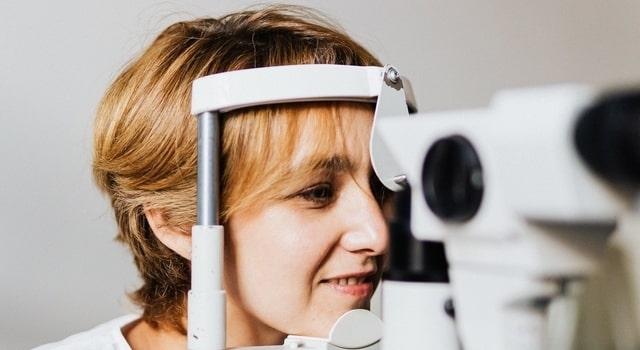
If you're getting ready for your first comprehensive eye exam, you may be curious about what happens at an eye exam and how to prepare.
An eye exam is a thorough evaluation of both your vision and the health of your eyes. Knowing how to prepare for your appointment ensures you get the most out of your eye exam.
Below are helpful tips to ensure your first visit goes smoothly, from knowing what to bring to understanding the types of eye tests you’ll likely experience at Lake Oswego Vision Clinic in Lake Oswego.
Key Steps to Ensure a Smooth Eye Exam Experience
1. Understand What Happens at an Eye Exam
A comprehensive eye exam involves multiple steps to assess your vision and overall eye health. During the appointment, one of our eye doctors will perform various tests, such as:
- Visual acuity test: This is a basic eyesight test where we will ask you to read letters off a chart. This measures how well you can see at different distances.
- Refraction test: This involves the use of different lenses to determine if you need prescription glasses.
- Eye muscle test: This evaluates how well your eyes move and work together.
- Retinal exam: Advanced imaging equipment checks the eyes' structures for abnormalities.
- Glaucoma screening: Also known as a “puff test” or tonometry, it measures the pressure inside your eyes, which helps detect glaucoma.
These are just a few of the many types of eye tests included in a comprehensive eye exam. Your eye doctor may also check your peripheral vision, eye alignment, and how your pupils respond to light.
2. Bring Your Current Glasses or Contact Lenses
If you already wear glasses or contacts, be sure to bring them to your appointment. Our optometrists will assess how well your current prescription is working and whether you need any adjustments. This is also the ideal time to discuss any discomfort you may be experiencing with your glasses or contacts.
3. Make a List of Any Vision Concerns
Having a record of eye symptoms that you've been experiencing can help your eye doctor tailor the optometry vision test to your needs. Common issues that you should discuss include:
- Sensitivity to light
- Trouble focusing on near or distant objects
- Eye strain or discomfort
- Dry, itchy, or irritated eyes
Communicating your concerns during the exam will help ensure we properly address any underlying issues.
4. Know Your Medical History
Before your exam, make sure you collect important details about your medical history, particularly any eye conditions or surgeries you’ve had.
If you have a family history of eye diseases like glaucoma, cataracts, or macular degeneration, you also need to inform your optometrist, as this can affect your risk of developing similar conditions.
During your exam, we will ask you about any medications you’re currently taking, as some drugs can impact eye health and vision.
5. Be Ready to Discuss Your Lifestyle and Vision Needs
Your daily habits and lifestyle can influence your eye care needs.
Prepare to talk about how much time you spend using digital devices, how often you’re outdoors, and whether you have specific visual needs for activities like sports or reading.
This allows us to provide tailored advice and suggestions for protecting your vision.
Request An Eye Exam in Lake Oswego
Preparing for your first comprehensive eye test ensures that your eye exam goes smoothly and that you receive the best care for your vision and eye health. Visit our eye clinic at Lake Oswego Vision Clinic.

